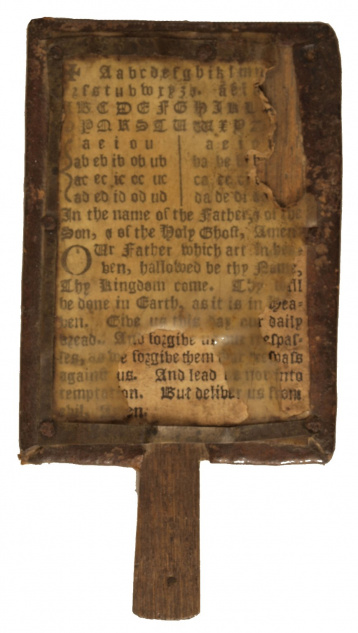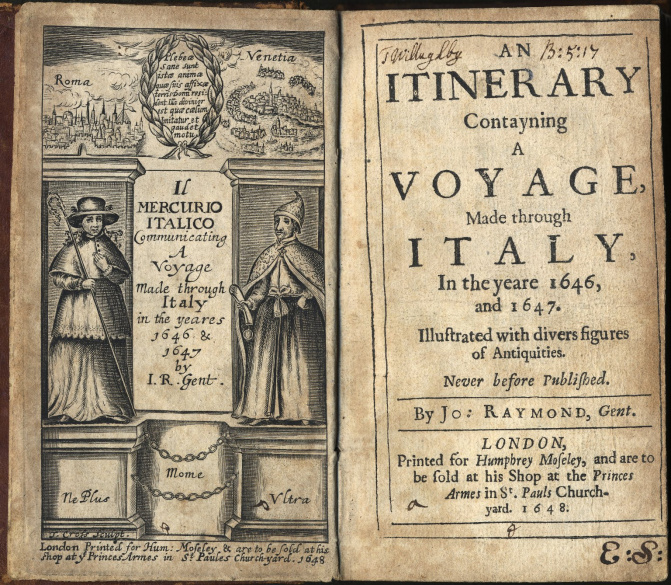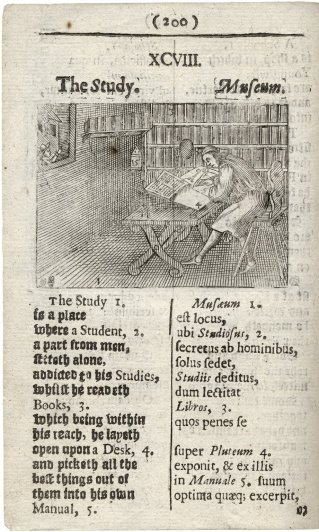Habits of Reading in Early Modern England

Directed by Steven Zwicker, Professor of English at Washington University
June 16 through July 25, 1997
This NEH Summer Institute for College and University Faculty made reading in all its facets the subject of intensive study and exploration. Working with the rich Folger collections and surveying the now substantial body of scholarship on the subject, the institute considered the full range of intellectual and affective transactions between readers and their books. Topics included: the ways that the printing and distribution of books shaped texts, the relations between the practices of reading and the formation of collections and libraries, the inflection of politics by prim, and the aesthetic and intellectual consequences of censorship, regulation, clientage, and patronage.
Throughout the course of the institute, participating college instructors expanded their knowledge of the book as a physical object with a session in the Folger's conservation laboratory; developed their facility in reading the hands of annotations with a paleography practicum; examined search strategies for evidence of readers' responses to texts with an introduction to online resources; and attended supplement field trips to the National Gallery of Art with an introduction to the Gallery's archive of prints and library of slides. This institute made available strategies for college faculty to understand and, more importantly, to teach how texts spoke to the passions of early modern politics and spirituality. To that pedagogical end, participants collectively assembled a packet of illustrative materials to be reproduced for incorporation into their own coursework with students.
Materials and Products
While the website is no longer supported, it has been archived: Institute Website: Habits of Reading in Early Modern England
A PDF of the website's pages with the participants' interpretive essays.
A PDF of the original promotional flyer.
The bibliography can be found here: Bibliography for Habits of Reading in Early Modern England
Resulting publication: Anderson, Jennifer and Elizabeth Sauer, ed. Books and Readers in Early Modern England: Material Studies. Philadelphia: University of Pennsylvania Press, 2001. Z1003.5.G7 B69 2002

Participants
(see also Habits of Reading in Early Modern England participants)
Derek Alwes, Ohio State University/Newark
Jennifer Andersen, California State University at San Bernardino
Sabrina Alcorn Baron, George Washington University
Anna Battigelli, State University of New York at Plattsburgh
Lana Cable, State University of New York at Albany
Lynne Dickson, Chatham College in Pittsburgh
Craig Dionne, Eastern Michigan University
Judith A. Dorn, St.Cloud State University
David R. Evans, Cornell College
Maura A. Henry, Harvard University
Randall Ingram, Davidson College
Kirstie McClure, Johns Hopkins University
Robert S. Miola, Departments of Classics and English
Andrea R. Nagy, Sweet Briar College
Lee Piepho, Sweet Briar College
Elizabeth Sauer, Brock University in Ontario, Canada.

Faculty
(See also Habits of Reading in Early Modern England faculty)
Peter W.M. Blayney, University of Toronto
Margaret J.M. Ezell, Texas A&M University
Margaret W. Ferguson, University of California, Davis
Anthony Grafton, Princeton University
Richard Helgerson, University of California, Santa Barbara
Michael Mendle, University of Alabama
Kevin Sharpe, University of Southampton
William H. Sherman, University of Maryland at College Park
Evelyn Tribble, Temple University
Laetitia Yeandle, Folger Shakespeare Library
For more past programming from the Folger Institute, please see the article Folger Institute scholarly programs archive.
Hosted by the Folger Shakespeare Library. For more information about current summer seminars, please visit the National Endowment for the Humanities website.